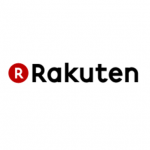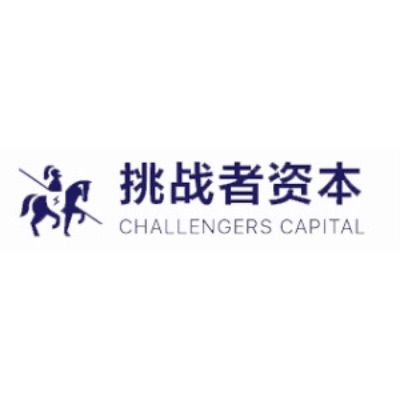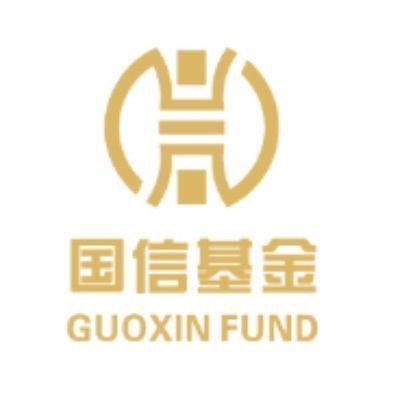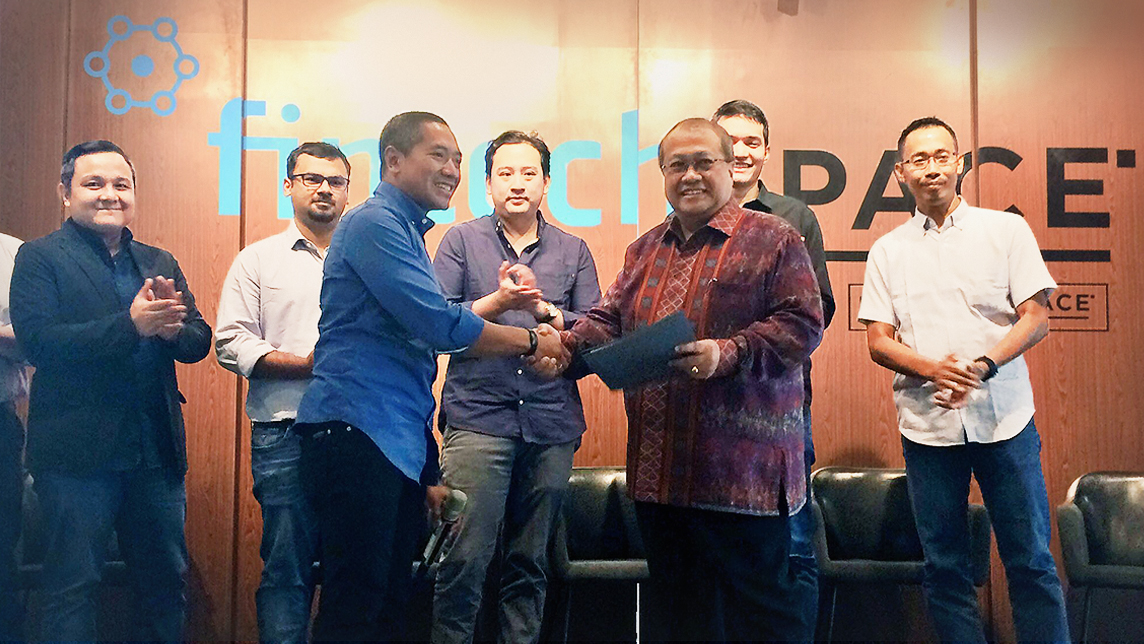Portugal Fintech
-
DATABASE (251)
-
ARTICLES (178)
CCO and co-founder of Modulous Tech
Reimell Ragnauth is co-founder and Chief Commercial Officer at UK-based Modulous, the first end-to-end generative design and delivery solution for affordable, sustainable and modulized housing, where he has worked since 2019. He also works part-time as a strategic investor to data analysis company iaidō and is a non-executive chairman at construction insulation company PMP Manufacturing.Before Modulous, he was chief business development officer at gold fintech startup Glint for a year and established its US office. He previously worked as the managing director of Spiralite Ductwork in the area of building energy efficiency from 2010-17. Prior to this, all of his positions were in the finance and investment area: at 3i Group as Associated Director of Quoted Private Equity 2007-9; at the Electra Group as a senior associate of the EQMC Fund 2006-7; at consultancy Deloitte as an associate director of private equity transaction services 2004-6; at Orbis Investments 2001-4 working in investment analysis; and as Manager of Business Recovery Services at PwC in London 1996-2000. Ragnauth holds a Master’s in Law from Cambridge University.
Reimell Ragnauth is co-founder and Chief Commercial Officer at UK-based Modulous, the first end-to-end generative design and delivery solution for affordable, sustainable and modulized housing, where he has worked since 2019. He also works part-time as a strategic investor to data analysis company iaidō and is a non-executive chairman at construction insulation company PMP Manufacturing.Before Modulous, he was chief business development officer at gold fintech startup Glint for a year and established its US office. He previously worked as the managing director of Spiralite Ductwork in the area of building energy efficiency from 2010-17. Prior to this, all of his positions were in the finance and investment area: at 3i Group as Associated Director of Quoted Private Equity 2007-9; at the Electra Group as a senior associate of the EQMC Fund 2006-7; at consultancy Deloitte as an associate director of private equity transaction services 2004-6; at Orbis Investments 2001-4 working in investment analysis; and as Manager of Business Recovery Services at PwC in London 1996-2000. Ragnauth holds a Master’s in Law from Cambridge University.
Founded in 2015, Mandiri Capital Indonesia (MCI) is the venture capital arm of Bank Mandiri, Indonesia’s largest bank. With the full weight of the Mandiri assets, network and knowhow at its disposal, MCI positions itself as a gateway for fintech firms looking to tap into Indonesia’s vast market potential. It also hosts Mandiri Digital Incubator and StartupBerbagi (Startups Share) to help SMEs go digital by connecting them to startups that can provide free services.
Founded in 2015, Mandiri Capital Indonesia (MCI) is the venture capital arm of Bank Mandiri, Indonesia’s largest bank. With the full weight of the Mandiri assets, network and knowhow at its disposal, MCI positions itself as a gateway for fintech firms looking to tap into Indonesia’s vast market potential. It also hosts Mandiri Digital Incubator and StartupBerbagi (Startups Share) to help SMEs go digital by connecting them to startups that can provide free services.
Central Capital Ventura is backed by Bank Central Asia (BCA), one of Indonesia's largest banks. The venture capital firm is focused on identifying and investing in fintech and other technologies that can potentially support BCA's own businesses and service ecosystem. Central Capital Venture has backed Indonesian microlending company JULO and Singapore payments processing company Wallex. It has also invested in Gerbang Pembayaran Nasional (GPN), Indonesia's new national card-based payment gateway system.
Central Capital Ventura is backed by Bank Central Asia (BCA), one of Indonesia's largest banks. The venture capital firm is focused on identifying and investing in fintech and other technologies that can potentially support BCA's own businesses and service ecosystem. Central Capital Venture has backed Indonesian microlending company JULO and Singapore payments processing company Wallex. It has also invested in Gerbang Pembayaran Nasional (GPN), Indonesia's new national card-based payment gateway system.
Western Technology Investment (WTI)
Founded in 1980, Western Technology Investment invests in tech and life science startups. To date, it has invested over $6bn in 1,300 companies worldwide across diverse market segments.The Silicon Valley-based WTI currently has more than 500 companies in its global portfolio. Recent investments include US anti-aging medtech Elevio’s $15m funding in November 2020 and the $4.3m seed round in August 2020 for US fintech for teens Copper Banking.
Founded in 1980, Western Technology Investment invests in tech and life science startups. To date, it has invested over $6bn in 1,300 companies worldwide across diverse market segments.The Silicon Valley-based WTI currently has more than 500 companies in its global portfolio. Recent investments include US anti-aging medtech Elevio’s $15m funding in November 2020 and the $4.3m seed round in August 2020 for US fintech for teens Copper Banking.
Launched in 2013, Japan’s Rakuten Capital is the corporate venture capital arm of conglomerate Rakuten. It manages a range of funds, such as the early-stage Rakuten Ventures, Rakuten Fintech Fund, and Rakuten Mobility Investments. Its portfolio covers a broad range of companies, including C2C e-commerce platform Carousell, ride-hailing unicorn Gojek, and video game vouchers platform CodaPay. Notable exits include the IPOs of US-based ride hailing company Lyft and image sharing site Pinterest.
Launched in 2013, Japan’s Rakuten Capital is the corporate venture capital arm of conglomerate Rakuten. It manages a range of funds, such as the early-stage Rakuten Ventures, Rakuten Fintech Fund, and Rakuten Mobility Investments. Its portfolio covers a broad range of companies, including C2C e-commerce platform Carousell, ride-hailing unicorn Gojek, and video game vouchers platform CodaPay. Notable exits include the IPOs of US-based ride hailing company Lyft and image sharing site Pinterest.
Founded in 2014 by internet/high-tech veteran and serial entrepreneur Huang Mingming, FutureCap focuses on early-stage investment of internet and high-tech startups. Differing from other early-stage investors, FutureCap conducts a more conservative investment strategy. With less than 20 investments a year, which are mostly from automotive, corporate services and hardware industries, FutureCap tries to avoid fintech and online-to-offline startups, citing the lack of business model in some and cash burning involved.
Founded in 2014 by internet/high-tech veteran and serial entrepreneur Huang Mingming, FutureCap focuses on early-stage investment of internet and high-tech startups. Differing from other early-stage investors, FutureCap conducts a more conservative investment strategy. With less than 20 investments a year, which are mostly from automotive, corporate services and hardware industries, FutureCap tries to avoid fintech and online-to-offline startups, citing the lack of business model in some and cash burning involved.
The world’s most valuable fintech firm, Ant Financial Services originated from Alipay, the third-party payments platform under the Alibaba Group. Today, it also runs a money-market fund and an online bank. Ant Financial has more than 450 million active users. It has also expanded into foreign markets, including the US, UK, Germany, Thailand and Australia, and expects more than 60% of its transactions to come from outside China by 2026. It targets to serve 2 billion users then.
The world’s most valuable fintech firm, Ant Financial Services originated from Alipay, the third-party payments platform under the Alibaba Group. Today, it also runs a money-market fund and an online bank. Ant Financial has more than 450 million active users. It has also expanded into foreign markets, including the US, UK, Germany, Thailand and Australia, and expects more than 60% of its transactions to come from outside China by 2026. It targets to serve 2 billion users then.
Adrian Suherman has over 19 years of management experience, including senior executive roles. He was the vice president of Indonesian telco Telkomsel and was also the CEO of aCommerce. Adrian was previously a software engineer for Sun Microsystems and had also worked at Sherikon Inc, Oracle, AT Kearney and LivingSocial.He is currently the CEO of Lippo Group’s digital branch and fintech firm OVO, as well as a commissioner of Lippo Group’s e-tailer MatahariMall.
Adrian Suherman has over 19 years of management experience, including senior executive roles. He was the vice president of Indonesian telco Telkomsel and was also the CEO of aCommerce. Adrian was previously a software engineer for Sun Microsystems and had also worked at Sherikon Inc, Oracle, AT Kearney and LivingSocial.He is currently the CEO of Lippo Group’s digital branch and fintech firm OVO, as well as a commissioner of Lippo Group’s e-tailer MatahariMall.
Challengers Capital was founded in 2014. Its founding partners are angel investors Xie Xianlin and Tang Binsen. It manages three RMB funds with around RMB 2 billion in management.Challengers Capital focuses on areas like consumption upgrade, entertainment, gaming, enterprise services and fintech.
Challengers Capital was founded in 2014. Its founding partners are angel investors Xie Xianlin and Tang Binsen. It manages three RMB funds with around RMB 2 billion in management.Challengers Capital focuses on areas like consumption upgrade, entertainment, gaming, enterprise services and fintech.
Established in 2009, Shenzhen-based Guoxin Fund was formerly a subsidiary of Tianjin Chongshi Equity Investment Fund Management Co. Ltd. It became an independent entity in 2013, focusing on private fund management. As a state-controlled firm, Guoxin Fund now has over 10 branches and owns or controls shares in more than 20 companies whose business lines include industrial investment, fund management, financial lease, asset management, wealth management and fintech.
Established in 2009, Shenzhen-based Guoxin Fund was formerly a subsidiary of Tianjin Chongshi Equity Investment Fund Management Co. Ltd. It became an independent entity in 2013, focusing on private fund management. As a state-controlled firm, Guoxin Fund now has over 10 branches and owns or controls shares in more than 20 companies whose business lines include industrial investment, fund management, financial lease, asset management, wealth management and fintech.
Founded in Beijing in 2015, Frees Fund is an asset management company with a portfolio valued at RMB 3.6bn. Frees primarily invests in early-stage startups in diverse sectors including fintech, education, healthcare, entertainment, hardware, intelligent manufacturing and SaaS. The VC is incorporated as Shanghai Ziyou Investment Management Co Ltd.
Founded in Beijing in 2015, Frees Fund is an asset management company with a portfolio valued at RMB 3.6bn. Frees primarily invests in early-stage startups in diverse sectors including fintech, education, healthcare, entertainment, hardware, intelligent manufacturing and SaaS. The VC is incorporated as Shanghai Ziyou Investment Management Co Ltd.
CICFH was co-founded in 2013 by China Investment Securities, ZhongCai Financial Holding Investment and other companies. Based in Tianjin, the VC manages multiple funds worth over RMB 80bn in total.CICFH focuses on M&A in emerging industries and mainly invests in sectors of media, arts, entertainment, healthcare, fintech and environmental technology through multiple funds established with other enterprises. It has also set up multiple FoFs, partnering with provincial governments to spur the development of certain industries.
CICFH was co-founded in 2013 by China Investment Securities, ZhongCai Financial Holding Investment and other companies. Based in Tianjin, the VC manages multiple funds worth over RMB 80bn in total.CICFH focuses on M&A in emerging industries and mainly invests in sectors of media, arts, entertainment, healthcare, fintech and environmental technology through multiple funds established with other enterprises. It has also set up multiple FoFs, partnering with provincial governments to spur the development of certain industries.
Stanford Graduate School of Business
Launched in 2015, the Stanford GSB Impact Fund invests globally in innovators and tech startups whether connected with the university or not and within the area of social impact in seven market segments: education, energy and the environment, fintech, food and agriculture, justice, healthcare, and urban development. The university-owned fund invests from the pre-seed to Series A rounds and makes investments mostly from January to April. It currently has 11 startups in its portfolio.
Launched in 2015, the Stanford GSB Impact Fund invests globally in innovators and tech startups whether connected with the university or not and within the area of social impact in seven market segments: education, energy and the environment, fintech, food and agriculture, justice, healthcare, and urban development. The university-owned fund invests from the pre-seed to Series A rounds and makes investments mostly from January to April. It currently has 11 startups in its portfolio.
Beijing Kunlun Tech Co., Ltd. (Kunlun) is a Beijing-based gaming, fintech and software company founded in 2008. It went public on the Shenzhen Stock Exchange in 2015. In 2016, Kunlun acquired a 60% stake in Grindr. It now invests primarily in sectors such as social networking, live streaming, IoT and AI. Four of the companies in which it invested - Qudian, Yinke, Opera and Ruhan - have gone public as of April 2019.
Beijing Kunlun Tech Co., Ltd. (Kunlun) is a Beijing-based gaming, fintech and software company founded in 2008. It went public on the Shenzhen Stock Exchange in 2015. In 2016, Kunlun acquired a 60% stake in Grindr. It now invests primarily in sectors such as social networking, live streaming, IoT and AI. Four of the companies in which it invested - Qudian, Yinke, Opera and Ruhan - have gone public as of April 2019.
Hongtai Capital Holdings (Aplus Capital)
Well-known entrepreneur Yu Minhong and Sheng Xitai, a senior investment banker, co-founded Aplus Capital in November 2014. In November 2017, Aplus Capital formally changed its name to Hongtai Capital Holdings. By the end of 2018, the assets under its management have amounted to over RMB 20 billion. Hongtai Capital Holdings mainly invests in startups in various stages of growth and focuses on sectors of artificial intelligence, big data, consumer products, entertainment, education, manufacturing and fintech.
Well-known entrepreneur Yu Minhong and Sheng Xitai, a senior investment banker, co-founded Aplus Capital in November 2014. In November 2017, Aplus Capital formally changed its name to Hongtai Capital Holdings. By the end of 2018, the assets under its management have amounted to over RMB 20 billion. Hongtai Capital Holdings mainly invests in startups in various stages of growth and focuses on sectors of artificial intelligence, big data, consumer products, entertainment, education, manufacturing and fintech.
Amid Covid-19 gloom, some bright spots in Portugal's tech startup scene
Despite a recession and doubling of the unemployment rate forecast this year, it's not all bad news for the Portuguese tech ecosystem
James, an AI-powered tool for faster, more accurate credit risk assessment
Capable of analyzing over 7,000 types of data, the award-winning credit risk tool for financial institutions is also quick to install and roll out
Bdeo: Using video intelligence to automate, speed up insurance claims handling and payouts
Insurtech SaaS Bdeo lets insurers process 70% of motor and property claims without human staff; targets Series A close by year-end
Billin offers unlimited free e-invoicing services to SMEs and freelancers
Offering automated online invoice generating, sharing, tracking and payments, the Spanish fintech wants to become the billing Dropbox for businesses worldwide
StudentFinance: AI screening software matches students to IT courses and jobs
StudentFinance also offers "Study now, pay later" model, making IT courses financially accessible while helping companies overcome skilled tech talent shortage
Women entrepreneurs get ahead faster in Portugal
Still a long way to go for equality, but female founders in Portugal have made significant headstarts as tech innovators
Jojonomic's fintech PaaS helps corporates automate reimbursement, prevent fraud
Jojonomic is used by big companies including Pertamina Patra Niaga, Lazada, Tokopedia and Gojek
After insurtech and fintech, Newralers applies AI to winemaking
Newralers expects strong demand for its disruptive AI solutions that test the cognitive value of information, with clients from listed companies to SMEs
4YFN: Investment booms across Europe during pandemic
Speaking at the recent 4YFN conference, prolific European startup investor Mattias Ljungman provided a highly optimistic assessment of the continent's current ecosystem strength and climate for seed funding
Coinscrap: Digital piggy banks for millennials
Smart savings app helps young consumers save and invest every cent of spare change by rounding up payments for purchases
Growing together: a look at the Indonesia Fintech Association (Aftech)
The Indonesia Fintech Association sets an example of how professional associations can help new industries grow faster and better
Capaball: Empowering employees to upskill in tech as more businesses digitalize
The Spanish edtech platform for Fortune 500 clients and professionals is focused on developing new markets in Latin America
Harnessing its innovative startups, Portugal builds a better cleantech ecosystem
With help from government and private-sector initiatives, Portuguese cleantech startups are playing an ever-increasing role in helping the country meet its energy challenges while cutting harmful greenhouse gases
Lota Digital: Disrupting fishing in Portugal for a sustainable future
The “digital fish market” app helps fishermen compete in a market dominated by large players
Portugal looks to its marine heritage to create an oceantech leader
Portugal is tapping oceantech disruption to create new value out of its blue economy, with strong government push
Sorry, we couldn’t find any matches for“Portugal Fintech”.





































